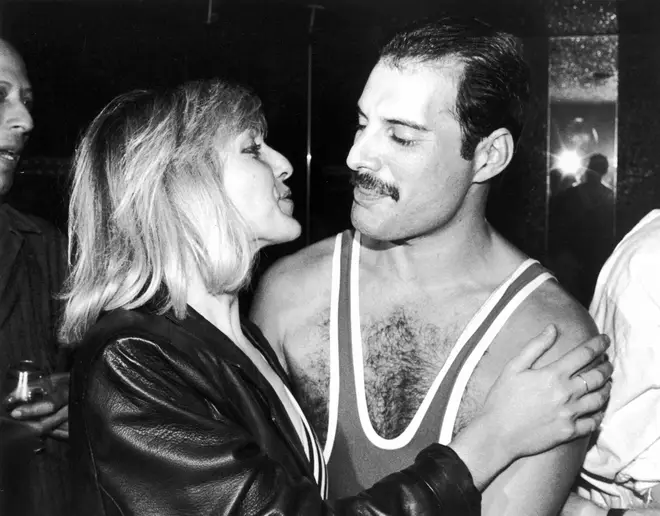It has been three decades since the iconic frontman of Queen, Freddie Mercury, lost his life to AIDS at the age of 45.
The world learned about his diagnosis just 24 hours before his tragic passing on November 24, 1991.
Despite the ravaging effects of the cruel disease on his body, Freddie chose to keep his illness a secret, confiding only in those closest to him.
Brian May, his friend and bandmate in Queen, disclosed in a 2017 interview that the virus had taken a severe toll on Freddie’s health.
During a poignant moment shared with May, Freddie revealed the extent of his suffering caused by the disease, particularly focusing on the condition of his foot, which had deteriorated significantly.
Despite his physical struggles, Freddie maintained a brave facade, shielding his millions of fans worldwide from the reality of his declining health.
In the final two years of his life, Freddie retreated into near seclusion, allowing only a select few from his inner circle to visit him.
Among those who spent time with him during his last days were his Queen bandmates, close friend Elton John, and Mary Austin, whom he referred to as “the love of my life.”
Peter Freestone, Freddie’s friend and personal assistant, known affectionately as Phoebe, shed light on Freddie’s internal battle with coming to terms with his diagnosis.
He recounted how Freddie, like many others at the time, tried to push aside thoughts of being infected with the HIV/AIDS virus, considering it a distant threat that would not affect him personally.
Despite suspecting his illness four years prior, Freddie delayed confirming his fears until urged by Mary to undergo testing.
Reluctant to face the truth, Freddie avoided calls from his doctor until Mary intervened, eventually leading to the confirmation of his diagnosis.
In a heartbreaking turn of events, Freddie made the difficult choice to discontinue his AIDS medication upon his return from Switzerland in early November 1991.
However, even in his final moments, he displayed remarkable selflessness by dedicating his time to recording Queen’s last album, “Made In Heaven,” released posthumously.
Just one day before his passing, Freddie chose to make his diagnosis public, releasing a statement acknowledging his HIV-positive status and battle with AIDS.
Expressing a desire to protect the privacy of his loved ones, Freddie urged his fans to join him in the fight against the devastating disease.
Before his death, Freddie arranged thoughtful Christmas gifts for his friends, including Elton John, whom he presented with a painting by Henry Scott Tuke, accompanied by a touching note signed as “Melina.”
This gesture exemplified Freddie’s enduring kindness and consideration for others, even in his final days.
Elton John fondly recalled the moment he received Freddie’s gift, reflecting on the deep impact of Freddie’s selfless act amidst his own grief.
The painting and heartfelt note served as a poignant reminder of Freddie’s compassion and generosity, leaving a lasting impression on those who knew him.































